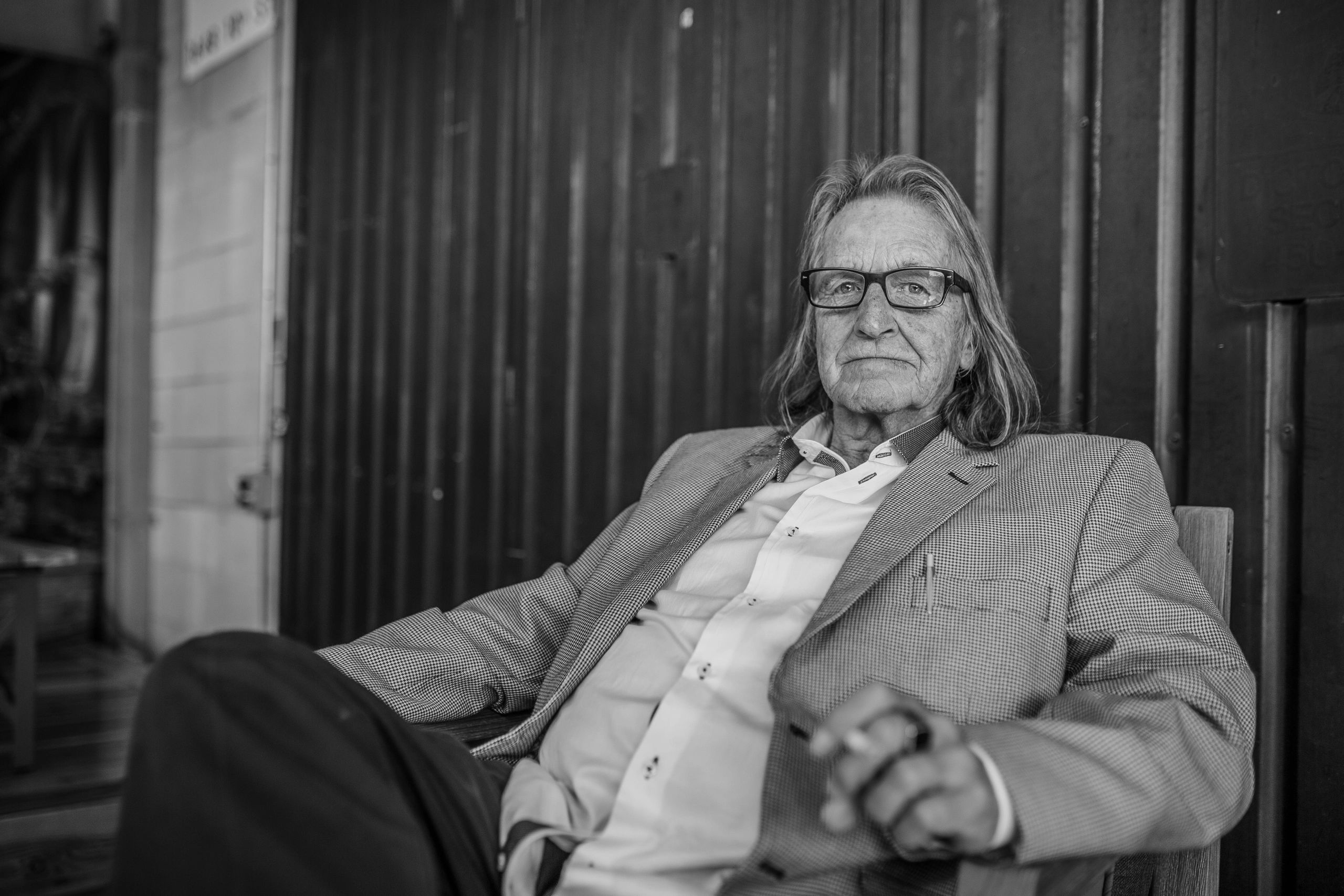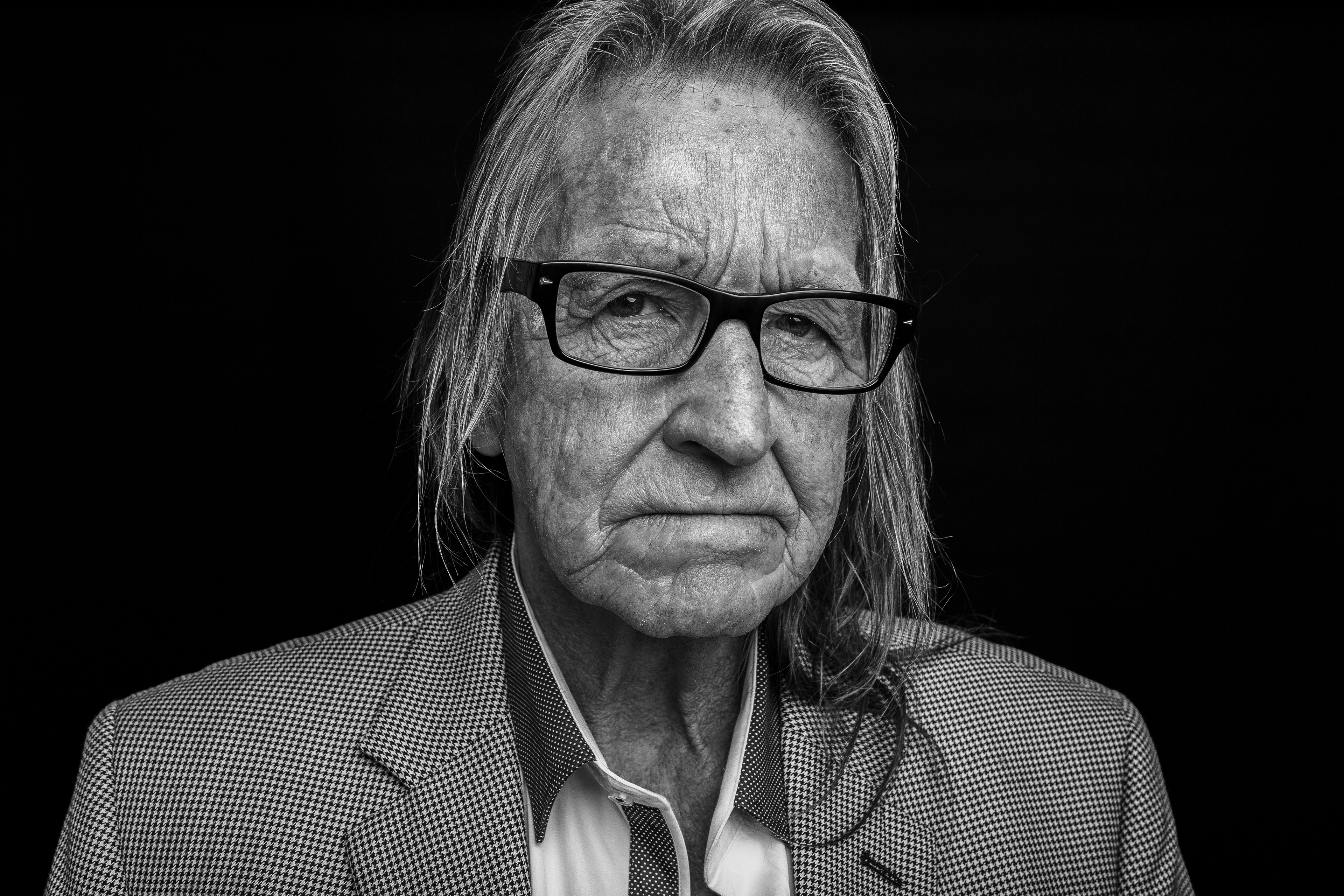George Jung Boston George: The Untold Story Of A Kingpin's Rise And Fall
When you hear the name George Jung Boston George, it’s hard not to think about one of the most infamous drug traffickers in modern history. His story is a rollercoaster ride filled with betrayal, riches, and ultimately, downfall. But what made George Jung so unique? Was he just another criminal or a product of his time? Let’s dive deep into the life of this legendary figure and uncover the truth behind his rise to fame.
George Jung’s tale is more than just a story of crime—it’s a reflection of the 1970s drug culture that swept across America. From selling marijuana in college dorms to becoming the right-hand man of Pablo Escobar, Jung’s journey is a textbook example of ambition gone wrong. His story has been immortalized in movies like "Blow," but there’s so much more to it than what meets the eye.
So, why does George Jung Boston George continue to fascinate people? Is it his charisma? The audacity of his crimes? Or maybe it’s the fact that he managed to live a life most people only dream about—for a while, at least. Stick around as we unravel the layers of this enigmatic character and explore the highs and lows of his life.
- Chad Johnson Net Worth The Untold Story Of Success And Wealth
- Adam Curry The Man Who Shaped The Podcasting Revolution
The Early Days: How It All Began
Every great story starts somewhere, and for George Jung, it began in Weymouth, Massachusetts. Born on August 6, 1942, George grew up in a middle-class family with dreams of making it big. But life in the suburbs wasn’t enough for him. He was always looking for something more, something exciting. And that excitement came knocking when he discovered the world of drugs.
During his college years, Jung started experimenting with marijuana. It wasn’t long before he realized there was money to be made in selling it. This was the beginning of a path that would eventually lead him to the top of the cocaine trade in the United States.
George Jung: A Quick Bio
Let’s take a moment to break down some key facts about George Jung. Here’s a quick overview:
- Byron Allen Net Worth The Untold Story Of Success And Influence
- Brooke Dorsay A Rising Star In The Entertainment World
| Full Name | George Jung |
|---|---|
| Nickname | Boston George |
| Birth Date | August 6, 1942 |
| Place of Birth | Weymouth, Massachusetts |
| Occupation | Drug Trafficker |
Breaking into the Cocaine Trade
By the late 1960s, George Jung had already established himself as a small-time drug dealer. But his big break came when he met Carlos Lehder, a Colombian smuggler who would change his life forever. Together, they formed a partnership that would bring cocaine to the United States on an unprecedented scale.
This was no ordinary operation. They used private planes, remote islands, and even submarines to smuggle massive amounts of cocaine into the country. It was a game-changer in the drug trade, and George Jung was right in the middle of it all.
Key Partnerships: Who Was Carlos Lehder?
Carlos Lehder was more than just a partner; he was a mentor to George Jung. Lehder introduced him to the Medellín Cartel, where he met Pablo Escobar. This alliance turned Jung into one of the most powerful figures in the cocaine trade, but it also set the stage for his eventual downfall.
The Rise of Boston George
As George Jung’s operation grew, so did his reputation. He became known as "Boston George," a moniker that reflected his roots and his growing influence in the drug world. But with great power came great risks, and Jung was constantly looking over his shoulder.
Despite the dangers, Jung thrived. He lived a lavish lifestyle, spending his money on luxury cars, expensive homes, and extravagant parties. For a while, it seemed like nothing could stop him.
Living the High Life: The Luxuries of a Drug Kingpin
- Multiple homes in Florida and California
- A fleet of high-performance cars
- Parties that lasted for days
- Access to the world’s most exclusive clubs
But all of this came at a cost, and Jung knew it. The lifestyle was intoxicating, but it was also a double-edged sword.
The Fall: How It All Crumbled
Nothing lasts forever, and George Jung’s empire was no exception. In 1987, he was arrested in a sting operation that involved the DEA and local law enforcement. The charges were severe, and Jung faced a long prison sentence.
What made his arrest even more devastating was the betrayal by his former partners. Many of them turned on him, testifying against him in exchange for reduced sentences. It was a bitter pill to swallow, but Jung had no choice but to accept the consequences of his actions.
Life Behind Bars: George Jung in Prison
After his arrest, George Jung spent over two decades in prison. During this time, he reflected on his life and the choices that led him there. He wrote a memoir, "Drug Lord," which detailed his experiences in the drug trade and his eventual downfall.
Prison life was tough, but Jung used it as an opportunity to reinvent himself. He became a symbol of redemption, a man who had made mistakes but was willing to learn from them.
The Legacy of George Jung Boston George
Even after his release in 2007, George Jung’s legacy continued to grow. His story inspired the movie "Blow," starring Johnny Depp, which brought his name to a wider audience. But beyond the Hollywood glamour, Jung’s life serves as a cautionary tale about the dangers of greed and ambition.
He spent his later years speaking at events and sharing his story with others. Jung became an advocate for drug policy reform, using his experiences to highlight the flaws in the war on drugs.
Lessons Learned: What Can We Take Away from George Jung?
- The dangers of unchecked ambition
- The importance of accountability and responsibility
- The need for reform in drug policy
George Jung’s story is a reminder that success, no matter how grand, can come at a tremendous cost.
George Jung Boston George: The Final Chapter
George Jung passed away on December 15, 2019, at the age of 77. His death marked the end of an era, but his story continues to inspire and educate people around the world. Whether you see him as a villain or a victim of circumstance, there’s no denying the impact he had on the world.
Remembering George Jung: A Tribute
In his final years, George Jung became a symbol of hope and redemption. He used his past mistakes to educate others and advocate for change. His story is a powerful reminder that even the darkest chapters in life can lead to growth and transformation.
Conclusion: What George Jung Boston George Teaches Us
As we wrap up this journey into the life of George Jung Boston George, it’s important to reflect on the lessons we’ve learned. His story is a cautionary tale about the dangers of greed and the consequences of one’s actions. But it’s also a testament to the power of redemption and the ability to change.
We invite you to share your thoughts in the comments below. What do you think about George Jung’s story? Do you believe in second chances? Let’s keep the conversation going and continue to learn from the lives of those who came before us.
Table of Contents
- The Early Days: How It All Began
- George Jung: A Quick Bio
- Breaking into the Cocaine Trade
- Key Partnerships: Who Was Carlos Lehder?
- The Rise of Boston George
- Living the High Life: The Luxuries of a Drug Kingpin
- The Fall: How It All Crumbled
- Life Behind Bars: George Jung in Prison
- The Legacy of George Jung Boston George
- Lessons Learned: What Can We Take Away from George Jung?
- George Jung Boston George: The Final Chapter
- Remembering George Jung: A Tribute
- Conclusion: What George Jung Boston George Teaches Us
So there you have it—the incredible story of George Jung Boston George. It’s a tale that will stay with you long after you’ve finished reading. Share this article with your friends and family, and let’s keep the conversation going!
Article Recommendations
- Brandi Brandt The Rising Star You Need To Know About
- Jason Aldean 2025 Tour Get Ready For The Ultimate Country Music Adventure



Detail Author:
- Name : Harvey Johnston
- Username : rashad.christiansen
- Email : whammes@yahoo.com
- Birthdate : 1995-01-12
- Address : 284 Rohan Extensions Hattiemouth, NM 45384-6363
- Phone : 1-631-992-2796
- Company : Stroman Ltd
- Job : Motor Vehicle Operator
- Bio : Qui rerum qui est velit facere. Ab voluptate fuga voluptates quam accusamus aut impedit. Deserunt sunt autem provident consequatur. Nemo aut quibusdam numquam est voluptatem.
Socials
facebook:
- url : https://facebook.com/schillerl
- username : schillerl
- bio : Quisquam provident omnis vel quibusdam. Ad aut necessitatibus aut est delectus.
- followers : 6791
- following : 2569
linkedin:
- url : https://linkedin.com/in/leone3161
- username : leone3161
- bio : Ut et molestiae at facilis.
- followers : 1416
- following : 2767
tiktok:
- url : https://tiktok.com/@leone_id
- username : leone_id
- bio : Quos qui et odio ducimus. Voluptatum consequatur qui eos.
- followers : 2395
- following : 1926